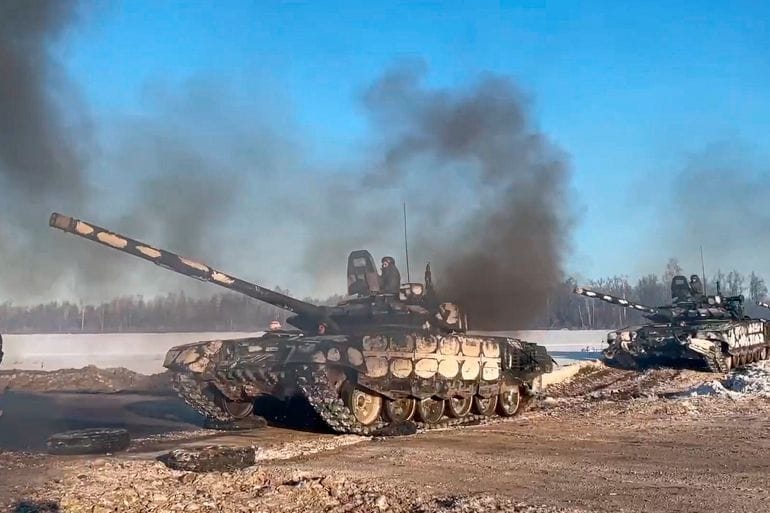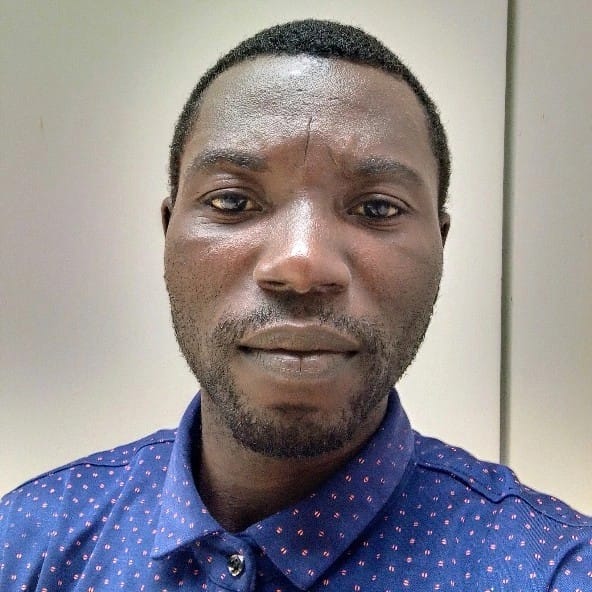Russia-Ukraine War And The Africa Ignored Wars
The Russian-Ukrainian war unleashed Europe’s largest refugee crisis since World War II, exposing global hypocrisy, racial injustice, and selective compassion toward conflicts in Africa and beyond.

The world woke up on Thursday, February 24th, 2022, to an unfortunate but foreseeable event of another battle of supremacy between the world's superpowers. Since World War II, the Russian-Ukrainian War has been the largest and deadliest war in Europe, causing hundreds of thousands of both military and civilian casualties. The conflict has also created Europe's largest refugee crisis since World War II, internally displacing about 8 million Ukrainians and forcing more than 8.2 million others to flee the country by April 2023.
The war between the Russian Federation and the Republic of Ukraine (NATO) has caught the attention of the human population all over the world. Citizens from different parts of the world were concerned and in solidarity with the Ukrainian Nationals whose innocent lives would be claimed under these circumstances, regardless of their race, religion, or political ideology.
In addition to the widespread international condemnation the invasion met with, demanding a full Russian withdrawal by the UN Human Rights Office, the International Court of Justice, the Council of Europe, and imposed sanctions on Russia from many countries and the Baltic states, protests also occurred worldwide. However, the situation also generated and reignited many debates globally, on why it's happening (and still happening), and how countries have been reacting.
Part of such debates include when similar circumstances appear in Africa, Arab, or any other so-called “Third World Countries” as often described, the show of concern was often never on an encouraging scale. The reactions generated by the global citizens on the Russia/Ukraine war in its first month alone were more than the attention garnered for over a decade-long ongoing killings in Africa, Asia, and the Middle East combined, including Israel’s illegal occupation of Palestine.
It will also shock one to see how some African immigrants were treated at the Polish Border during the war heightened moments (between February and March 2022) just because their skin tone is different. When one first comes across such clips all over the news, the preferential treatment is clearly appalling.
The world superpowers, who are supposedly the beacons of hope, democracy, justice, and civil rights, often derail while serving their political interests and global economic hegemony or power tussle. Unfortunately, African leaders have yet to learn to place more emphasis on their own nations. When regional conflicts of this magnitude, such as the Russia-Ukraine conflict, are going on, Africa should learn to sit aside and avoid meddling in the affairs that they were not supposed to interfere with in the first place. After all, whenever the elephants are fighting, it’s the grasses that will suffer the consequences. A word, they say, is enough for the wise.
Genesis Of Russian Russian-Ukrainian War
The main reasons for starting the war and its continuation to this date may be attributed to the following factors. These include but are not limited to;
1. Novorossiya: The Dream Of Establishing A New Russia
The annexation of Crimea and the war in Donbas in 2014 sparked a wave of Russian nationalism, following a “manifesto of Greater-Russia irredentism” from Putin's speech, referring to a former Russian imperial territory that covered much of southern Ukraine. With this Russian neo-imperialism dream, the Russian-backed forces were encouraged and sought to create the “Novorossiya” in the region.
To achieve this, Russia must prevent Ukraine from joining the European Union by forcing it to maintain closer ties to the Russian-led Eurasian Economic Union instead. It's worth remembering that in 2013, Ukraine's attempts to break away from Russian hegemony intensified and triggered some parliamentary agreements, including civilian protests known as “Euromaidan” that gave birth to the Revolution of Dignity in February 2014.
In late 2021, Russia brought forward some troops near Ukraine's borders and issued demands to the West including a ban on Ukraine ever joining the NATO military alliance. On 24 February 2022, Russia officially announced the invasion of Ukraine as a “special military operation”, citing reasons such as to “demilitarise and denazify” Ukraine and to “support the Russian-backed breakaway republics of Donetsk and Luhansk” who had been fighting Ukraine since the war in Donbas from 2014.
As of today (2025), Russian troops occupy about 20 percent of Ukraine, but the direct financial spending on the invasion appears to be too costly. As of late 2024, the cost of the war is estimated at $250 billion, with a cumulative figure of over US$450 billion by 2025, a cost that Russia could not have foreseen. Interestingly, the US government estimates that Russia's economic losses from the war and Western sanctions will amount to around $1.3 trillion by 2025.
2. NATO Membership And The Russia versus US Hegemony
When the Soviet Union was dissolved in 1991, Russia agreed to maintain cordial relations with Ukraine. In return for security guarantees, Ukraine gave up its nuclear weapons inherited from the Soviet Union and signed the Nuclear Non-Proliferation Treaty in 1994. This led to the Budapest Memorandum to uphold Ukraine's sovereignty and territorial integrity, including a Russian agreement to the Charter for European Security in 1999, affirming the right of each state “to choose or change its security arrangements” and to join alliances.
Until 2005, Russian president Vladimir Putin emphasized that if Ukraine wanted to join NATO, Russia would respect their choice, because it is their sovereign right to decide their own defence policy, and this would not worsen relations between the two countries. Unfortunately, powerful countries often change with the change of their economic priorities.
By 2008, before Obama's victory, the global political atmosphere and landscape took a different dimension, with the “Great Recession” in the US as the talk of the world, which lasted over 19 months until June 2009 from December 2007. This prompted each country to re-strategize its international policies and aim towards achieving its greater (neo-imperialism) goal. This led to the Russian invasion of Georgia in 2008 and took control of Abkhazia and South Ossetia, demonstrating Russia's willingness to use force to attain its political objectives where deemed necessary.
Fast forward to 2014, when the Russian-Ukrainian conflict initially began, Ukraine was officially a neutral country and maintained that it was not seeking NATO membership. However, following Russia's occupation of Crimea and its invasion of the Donbas region, Ukraine's parliament voted to revoke the country's neutral status and seek membership in NATO in December 2014.
The Russian Federation was not happy with that decision, and its president used the NATO bombing of Yugoslavia, as well as the Kosovo independence precedent, as a justification for their military intervention. Efforts were made to resolve the conflict, including the Minsk agreements in September 2014 and February 2015 but ceasefires and further negotiations woefully failed.
Back in 2008, the US was accused of “appeasement and naivete” over its reaction to the Georgian invasion while the West's response to Russia's attack was considered “weak”. This was believed by many political scientists as the contributing factors that led Russia to believe the West would not react strongly to the 2022 invasion of Ukraine.
3. Economic Motives
Economic interests were also a motive for Russia's attack on Ukraine and its annexation of the southeast. It was alleged that the Russian oligarchs, especially Russian generals, had heavily invested assets and property in Ukraine for money laundering purposes before the invasion. Russian General Vladimir Ovchinsky also confirmed that the 2022 “Russian special operation” was primarily aimed at seizing Ukrainian lithium deposits.
The total value of raw material stocks in Ukraine is estimated at over $26 trillion while the value of lithium and rare earths is around $11.5 trillion.
In mid-2022, a study by Canadian think tank SecDev published that Russia had already seized about 63 percent of Ukraine's coal reserves and $12.4 trillion worth of energy reserves, metals, and minerals in the Donbas region. These include 41 coal fields, 27 natural gas fields, 9 oil fields, 6 iron ore deposits, two titanium ore deposits, a strontium deposit, a uranium deposit, a gold deposit, and a large limestone quarry.
The Russians believe that control of lithium deposits in the Donbas and Ukraine's grain wealth would give them a “monopoly on the world market”. Unfortunately, the war-related disruption to Ukrainian agriculture and shipping contributed to a world food crisis, local environmental damage, and even disrupted the realization of the global climate policy.
In early 2024, January to be precise, the Russian government in Donetsk Oblast was permitted access to lithium mining in the Shevchenko deposit near Kurakhovo, which is estimated to be worth hundreds of billions of US dollars.
Ignored Global Conflicts And African Civil Wars
Globally, there were at least 4 major wars with 10,000 or more combat-related deaths just between 2021 and 2022 alone. These include the conflicts of Afghanistan, Myanmar, and Yemen versus Saudi Arabia, with potentially no less than 2,000 deaths from each war. In the same period, there were more than 40 conflicts around the world that have caused between 1,000–10,000 combat-related deaths even before the outbreak of the Russia-Ukraine War.
On African territories, there have been concurrent Civil Wars going on since 2016 and other conflicts as far back as 2009 such as the Boko Haram insurgency in Nigeria. These include civil wars in Cameroon, Ethiopia, Mali, Sudan, and recently Niger and Burkina Faso.
From 2017 to 2022, over 10,000 people have died, and another 1 million people have been internally displaced as a result of a Cameroon civil war alone, with UN Data placing the figures as 4,000 lost of lives and 700,000 internally displaced.
Another one to note is that of the Ethiopian government and the Tigray Region, which has left thousands of innocent lives dead, with over 2 million people forced to flee. The crisis had given rise to a wave of atrocities, rapes, looting, poverty, hunger, and starvation. The situation created a dire humanitarian crisis and a man-made famine, leading to over five million people in the Tigray region requiring urgent food assistance.
According to a January 2022 UNOCHA report,over 50,000 Children have disproportionately been impacted, and pregnant and lactating mothers experienced a malnutrition rate of up to 60 percent in the area.
Yet, none of these wars ever received the global attention, timely response, or condemnation while human rights violations were taking place and being trampled daily. Now, this will lead you to question WHY?
1.. Why do the Western powers or their leaders never want to stand and genuinely sympathize (not for political reasons) with developing nations (especially Africa and the Middle East) as the global citizens have been doing for the Ukrainians?
2. Were they not aware of the actual happenings in other countries and the fatalities that occur every day?
3. For instance, look at the situation in Israel's genocide of Palestinians. Do Israel's lives matter more and Palestinians less? If not, why the silence or the nonchalant attitude?
Well, I do not have the right answer for each question, but I will leave it to the reader for self-exploration. However, I would like to believe that I have already provided a clue for any person with a clear mind and a good conscience to connect the dots by themselves.
Nigeria As A Case Study
At some point in time, I had shared the belief that Marcus Garvey was right when he said that Black people will never become successful depending on whites (as nations) or other races of people, black people must come together and do it for themselves.
“People who forget their historical enemies and friends are a people who are dooms for destruction” ~Ikome Marcus
Sometimes, out of frustration, marginalized nations (or groups of people), including myself and millions of others worldwide, often use the above quote to serve as a powerful but brief reminder for them as global citizens who have never been recognized as people of equal rights.
When the Russian-Ukrainian war broke out, European leaders and the USA, including the UK (which happened to be the colonial masters of Nigeria), were immediately responsive, vocal in their parliaments, and supportive in every sense of it. In contrast, this had never been the case when it comes to other countries, especially where fewer economic gains from the American or European political lens are perceived.
To demonstrate this clearly, for instance, Nigeria fought its civil war between 6th July 1967 and 15th January 1970, which lasted for 30 Months, and claimed well over three million people, but the European powers did not support Nigeria both morally and militarily.
Over a decade ago, Nigeria was provoked into an armed confrontation with its neighbouring countries several times by France, despite struggling with its internal insurgency of Boko Haram. According to Defence News, in December 2014, the Nigerian Air Force seized a suspicious French military transport aircraft that landed at Aminu Kano International Airport heavily loaded with weapons, including helicopter gunships that were headed for N’Djamena, the capital city of Chad. The pilots and the crew were arrested by the DSS security agents and subsequently released, and the cargo plane was allowed to leave.
On 20th December 2015, 70 Nigerian civilians were killed by the Cameroonian troops who were reportedly invading the Kirawa-Jimni village in the Gwoza local government area of Borno state. Furthermore, on Tuesday, 26th January 2016, the Cameroonian troops shot and killed at least 40 innocent Nigerian civilians in the pretext of the cross-border pursuit of Boko Haram fighters.
Thanks to their French masters, who were employing “Maskirovka” tactics to provoke Nigeria into an armed confrontation with its neighbours that will invariably end with France having to “intervene militarily” against what they will term “Nigeria’s naked aggression,” but Nigeria avoided retaliation to evade their decoys.
These scenarios have been the same in almost all African countries, and the feelings are mutual among almost all African people.
Personally, I'm always for peace, and I will continue to work and pray for the restoration of peace all over the world to make it a better place for everyone. However, like any other patriotic citizen, I will pray for Nigeria (first, then others), where bandits, armed robbers, kidnappers, and terrorists are killing people every day and killing thousands of people each year while the world is in its continued pretence with deafening silence.

About The Author
"At the core of my work is a belief in the power of writing to inform, inspire, and empower communities, fostering healthier people, healthier societies, and a healthier world.With a diploma in Health Education and Promotion and ongoing studies at Bayero University Kano, I am committed to advancing health communication and behavior change.
My writing experience ranges from articles on health and climate change to contributions for online magazines and organizations, alongside part-time work in mental health rehabilitation.I am a passionate writer with a focus on Medical Writing, dedicated to bridging the gap between health practice and the wider community through clear, accessible communication. My curiosity spans across Public Health, Gender Studies, Environment, Climate Change, History, Economy, and Culture, enriching my ability to connect ideas and create meaningful insights."



Comments ()